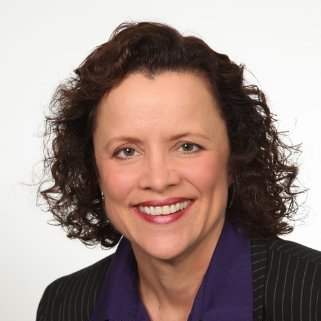Third in a series
Re “Robins on ‘Artistry and Expertise’ of Teachers”
[Editor’s Note: In part three of his For Great Schools series, Scott McVarish, co-founder of the United Parents of Culver City, interviews School Board member Sue Robins. A former teacher, she talks today about career paths for students. See www.facebook.com/forgreatschools]
Mr. McVarish: Not everyone goes to college. How do we get kids ready for anything when they are coming out of high school?
Ms. Robins: There needs to be a recognition that the paths of career vs. university are blurred now. Even the line between being in high school and being in community college is blurred. That is a good thing. It gives us tremendous opportunity to create unique and imaginative pathways for the kids so that they can pursue whatever interests them.
We have three areas that we are actively working on right now in terms of career pathways. The first one, the Theatre Tech Program, has been underway for quite a while. Students at our high school are taking classes at West L.A. College in Theatre Tech. We need to take that one more step and create internships so that they could take classes and gain experience concurrently.
Mr. McVarish: It would be great to see them working in some of the 99-seat theatres in Los Angeles, applying the trade, learning from professionals.
Ms. Robins: There are a lot of different pathways they can take if they are in Theatre Tech. We have many graphic arts companies in Culver City as well. The second one I am excited about is in the biotech field. This relates directly to what you were saying about immigration. One area where we, as a country, are not producing enough workers is in biotechnology laboratories. People who do the diagnostic test– when you have your blood or urine sent to a lab– are coming from other countries. Some of these jobs are very much in what I characterize as the CTE field, Career Tech Ed. They require a one- or two-year certification or AA degree. We have been talking to West L.A. College about developing a program for our students. We already have started a little. There is a biotechnology methods class being run this summer at West L.A. College that is available to any of our students who finish AP biology.
Mr. McVarish: The students get credit at the high school for those classes?
Ms. Robins: We have not been able to put that together because of the short timeframe. Long term, that is the goal.
Mr. McVarish: As an advocate for students and — remembering my days as a student in summer school– please make that happen for them.
Ms. Robins: At a minimum, it is a great thing to have on your college application. We are having initial conversations about concurrent enrollment programs. Students would be getting college credit and high school credit at the same time while learning some of the techniques and taking classes toward expertise in a biotechnology laboratory. I would love to see us be able to develop a West L.A. Clinical Laboratory Specialist Certification. That is required for any laboratories that collect human biological samples and test them.
Mr. McVarish: There are so many hospitals and health facilities in West L.A. alone that this could be a great program. High school students, however, are unlikely to know about these opportunities. How do you make them aware of it? How do you get them interested in this as a viable option when most of them never have even imagined it because they don’t even know it exists?
Ms. Robins: That is why there is a huge benefit in the concurrent enrollment piece. Concurrent enrollment means that you are taking a class at your high school and at the same time you are on a path to receive a certification. This is what I mean by blurring the lines. This is the type of path that someone could take whether they want to be a clinical laboratory specialist as their final career goal or if they ultimately want to study medical research or even medicine. A fair number of people in the industry who started out as a CLS now are in medical school.
Mr. McVarish: They can earn money and save up for medical school and be a more competitive applicant when they finally decide to go to medical school.
Ms. Robins: Absolutely. The third college and career pathway has been put together by our Human Resources Director Leslie Lockhart and the head of Human Resources for the city, Serena Wright. It would allow 20 or so interns from our high school to rotate through different departments of the city to learn how government operates and learn about the wide variety of jobs available in government. We are hoping to start it in September. One thing that excites me about this is that I recently learned that millennials are not going into either elected or staff positions of public service at anywhere near the rate that previous generations did. We may have a real dearth of people who are passionate about public service. Programs like this help students see how public service works, why it is important, and why this is something you might want to consider as a path.
(To be continued)
Mr. McVarish may be contacted at scott@forgreatschools.org and www.facebook.com/forgreatschools

